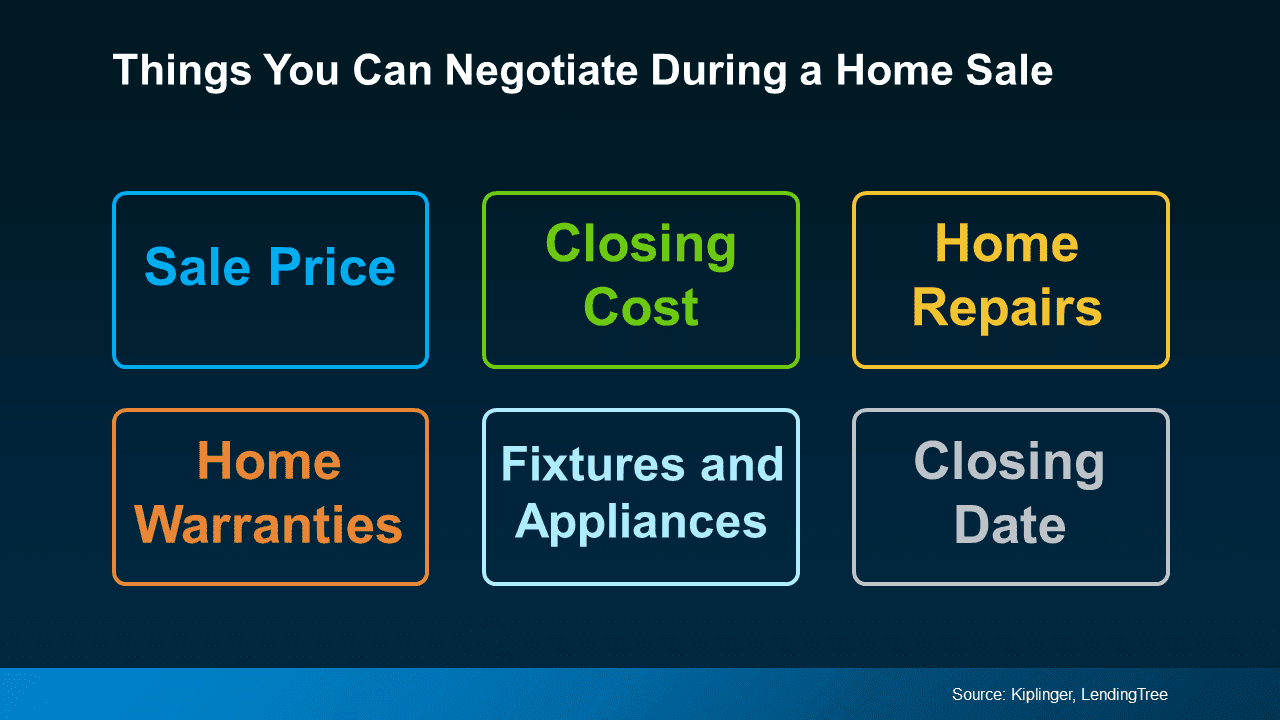Effective Negotiation Strategies for Today's Housing Market
In today’s evolving market, homebuyers are starting to regain some of their negotiating power. While this shift doesn't necessarily signal a full-blown buyer’s market, it does open the door for buyers to request more favorable terms. As a result, sellers should be prepared for potential negotiations and understand what they’re willing to compromise on.
Whether you're buying or selling, here’s a quick overview of common negotiation points you might encounter. Being informed will help you navigate the process, no matter which side you're on.
Most things in a home purchase are on the negotiation table. Here’s a list of just a few of those options, according to Kiplinger and LendingTree:
Key Negotiation Points
Nearly every aspect of a home purchase is open to negotiation. Here are a few of the most common areas to consider, as highlighted by Kiplinger and LendingTree:
Sale Price: The most obvious point of negotiation is the price of the home. In today’s market, buyers are increasingly cautious about overpaying, especially with affordability being a concern. Sellers who are too ambitious with their asking price may need to consider lowering it to attract serious offers.
Home Repairs: After an inspection, buyers have the right to request reasonable repairs. If a seller is unwilling to make those repairs, they might offer to reduce the sale price or cover some closing costs to help the buyer manage the repairs themselves.
Fixtures: Buyers can also negotiate to have certain appliances or furniture included in the sale. For example, asking the seller to leave behind the washer and dryer could save the buyer from additional expenses when moving in. Sellers, in turn, might use this as a bargaining chip to close the deal more favorably.
Closing Costs: These typically range from 2-5% of the home’s purchase price. Buyers can request that the seller cover some or all of these costs to reduce the upfront cash needed to finalize the purchase.
Home Warranties: A buyer might ask the seller to pay for a home warranty to cover potential maintenance costs after the sale. This is a relatively low-cost concession for the seller that can offer peace of mind to the buyer.
Closing Date: The timeline for closing is another area where negotiation is possible. Buyers might request a quicker or extended closing date to align with their schedule, while sellers can also negotiate to meet their own timing needs
The Role of Your Agent
Regardless of whether you're buying or selling, your real estate agent is a crucial ally in the negotiation process. They are your advocate, handling all communications and striving to secure the best terms for you. As Bankrate emphasizes:
“Agents have expert negotiating skills. Without one, you must negotiate the terms of the contract on your own.”
Additionally, your agent might gain valuable insights into the other party’s motivations through discussions with their agent. This information can be incredibly useful during negotiations, helping to tailor your approach and achieve a more favorable outcome.
Final Thoughts
As buyers gain a bit more leverage in today’s market, understanding your negotiation options will empower you in the home buying process. For sellers, anticipating potential requests allows you to consider what you’re willing to offer in advance.
Interested in discussing your options and what to expect in your upcoming transaction? Let’s connect.





